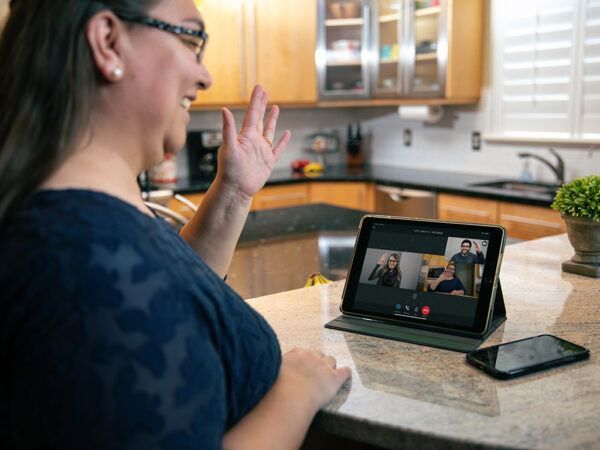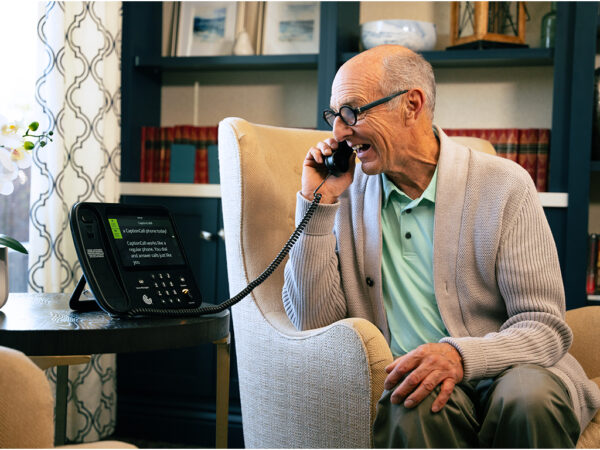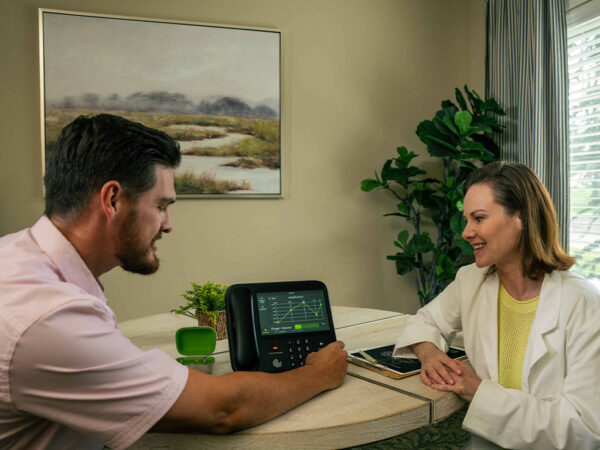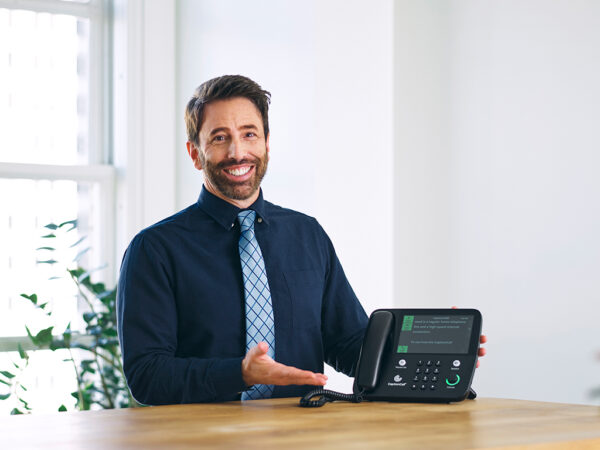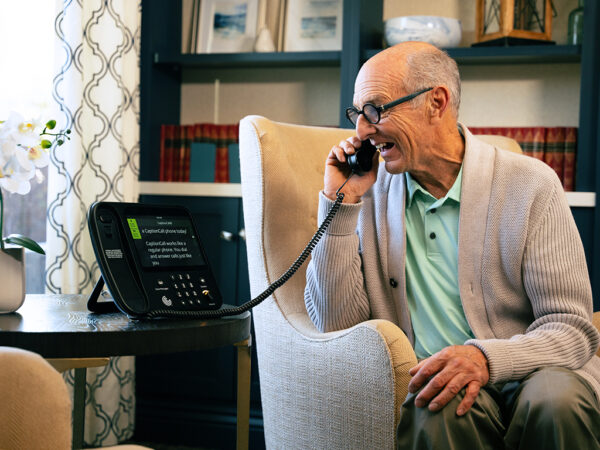Over the Counter Hearing Aids: Worth a Try?
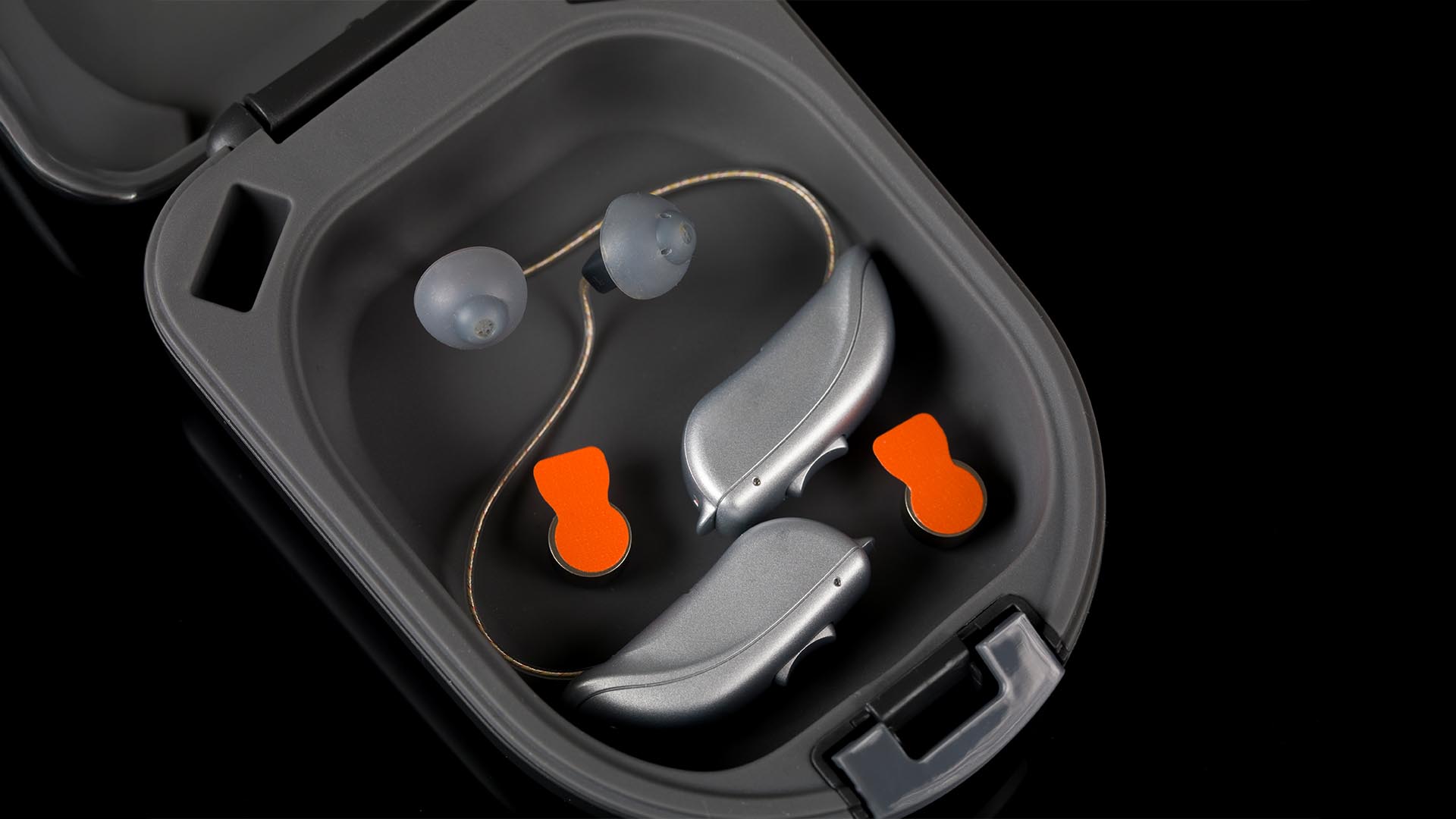
No Value (acf:field_669fe7fdb55ef)
Hearing loss may seem like one of those little annoyances that most of us would prefer not to think about or deal with for as long as we can manage. However, left unchecked, hearing loss can contribute to much more severe issues, such as isolation, depression, and even dementia.
In fact, according to a study by the National Institute on Deafness and Other Communication Disorders, nearly 29 million Americans could significantly benefit from wearing a hearing aid.
Even if you’re not quite ready to commit to a hearing aid, there are many types of assistive technology you can consider if you think you might be losing your hearing.
Hearing assistance technologies
A wide variety of tools and technologies help individuals with hearing loss communicate and navigate the world.
- Hearing aids are perhaps the most recognizable hearing assistive technologies. While most users have historically gotten theirs through a prescription from their audiologist, these days there are also over the counter (OTC) hearing aid options.
- Cochlear implants bypass the outer and middle-ear to deliver sound signals directly to the auditory nerve. They can be very effective, but as a surgical option, they’re generally only used in cases of severe hearing loss.
- Personal sound amplifiers are the simplest version of a hearing aid, using a mini microphone and in-the-ear headphones to amplify all collected sound. They generally have very limited settings or customizability.
- Captioned telephones, like the CaptionCall phone and CaptionCall Mobile app, enable people with hearing loss who need captions to understand phone calls to read along with what the other person is saying.
- TV listening headsets work similarly to loop systems, but for your home television. They’re essentially wireless headphones connected to your TV that enable you to set your personal volume without impacting others around you. They can also help block out ambient noise, which can make hearing the TV challenging.
- Loop systems are available in many public areas with PA systems or similar sound systems (such as museums or movie theaters). They allow enabled hearing aids to connect directly with sound systems, delivering clearer sound.
- Smartphone apps offer convenient assistance for hearing loss in a wide variety of ways, including speech-to-text transcription, sound amplification, and even simple sound monitoring.
- Tinnitus masking devices, whether in-the-ear (ITE), behind-the-ear (BTE), or tabletop all work on the same general principle: emit a soothing sound that covers the perceived tinnitus noise.
What are OTC hearing aids?
Modern OTC hearing aids really came into being around 2022, when the FDA, which regulates all hearing aids in the United States, established OTC as a category of hearing aids.
Unlike standard prescription hearing aids, OTC hearing aids are available to anyone over the age of 18 with perceived mild to moderate hearing loss. They may include basic features like volume control, wireless connectivity, and related smartphone apps. Some OTC hearing aids may be self-fitting, but like many generic brand or OTC versions of more expensive items, they typically veer closer to a “one-size-fits-most" build.
Pros and cons of OTC hearing aids
Let’s take a look at some things to think about when considering OTC hearing aids.
Pro: Accessibility
The most obvious positive about OTC hearing aids is that you can easily purchase them at many retail stores or online without any prerequisite steps. No hearing tests, no doctor visits, no formal fittings or prescriptions required.
Con: No professional support
While it may be more convenient to skip the audiologist appointment and pick up an OTC hearing aid from your local pharmacy, you’re losing out on expert input and support. Your audiologist can advise you on different brands and models of hearing aids, and even professionally fit and customize your hearing aids to optimally match your unique hearing loss. An off-the-rack shirt will never fit quite like a personally tailored one (and shirts are much less complex than hearing aids).
Pro: Cost savings
Traditional hearing aids often cost several thousand dollars. According to Forbes, the average cost of hearing aids is around $2,000. On top of that, many health insurance plans may not cover the cost of hearing aids (though you should always check your plan’s details to be sure).
This is probably the most common reason for trying OTC hearing aids — they’re cheaper than normal hearing aids. That’s not to say they’re cheap. Most OTC hearing aids will cost at least $100. But they’re still a much less expensive way to try out assistive hearing technology early on in your hearing loss journey.
Con: Limited use
The FDA has approved OTC hearing aids for mild or moderate hearing loss, so if you have severe hearing loss, OTC probably isn’t going to be a good option for you.
Additionally, as with many technologies, the lower-cost models won’t have all the bells and whistles that higher-end models do. OTC hearing aids often lack features like Bluetooth compatibility, directional microphones, or T-coils for connecting to induction loops or telephone hand-sets. They may even be bulkier, more visible designs, which could make some people feel self-conscious.
Pro: Potentially life-changing
Let’s not forget the social and psychological value of being able to communicate with others. Trying to keep up in conversations when you have hearing loss can literally be physically exhausting, and the long-term effects like isolation may even lead to an increased risk of dementia.
Of course, this is true of any assistive listening device, whether its traditional hearing aids, OTC hearing aids, or something else. What’s important is finding a solution that works for you.
Are OTC hearing aids worth a try?
If you’re experiencing hearing loss, it’s important to take action. Talking with an experienced hearing healthcare provider or audiologist is a great way to learn more about your specific hearing loss and what options are available to you.
OTC hearing aids are one of those options that are worth considering. Look for product reviews and recognizable brand names that you trust.
Ultimately, it’s up to you to weigh the pros and cons of OTC hearing aids.
It’s also worth remembering that hearing aids take some getting used to. For some people, OTC hearing aids may be a good lower-stakes option for building the habit of putting them in and taking them out, keeping them clean, and — most importantly — not losing them.
Still, attempting to fit, adjust, and familiarize yourself with any hearing aids without the support of a qualified audiologist can be a challenge.
Ultimately, it’s up to you to weigh the pros and cons of OTC hearing aids and decide whether they’re a good choice for you.
Related articles
Deaf Community
News
News and updates about Sorenson VRS products and features and the Deaf community
Hearing Health Providers News
Hearing loss news and trends for hearing health professionals
Hard-of-Hearing
News
News and updates about living well with hearing loss and getting the most out of CaptionCall and CaptionCall Mobile

No Value (acf:field_67911dacbb423)

No Value (acf:field_67911d8bbb421)









